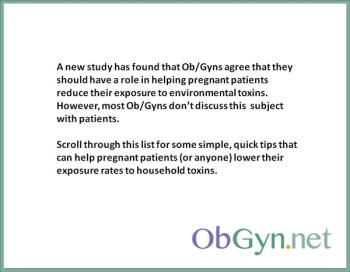
How's this for a unique way to offer certain fertility benefits as an employee incentive?

How's this for a unique way to offer certain fertility benefits as an employee incentive?

First-trimester exposure to maternal estradiol may increase risk of thyroid dysfunction in offspring conceived via in vitro fertilization (IVF), according to a study in Fertility & Sterility.

Two studies show that the emotional impact of uterine fibroids is significant but support is lacking, especially in African American women.

Voters in North Dakota sent a clear message that health care decisions, from pregnancy to end-of-life care, must involve only patients and their physicians.

A consequence of Measure 1, which may or may not be a "personhood" amendment, is that IVF and other infertility services in North Dakota will end.

Women with high dairy diets have higher live birth rates after IVF; maternal diets high in butterfat can ameliorate effects of BPA exposure on embryos in rats.

There is little research on preserving fertility in transgendered men. Research from Sweden provides some evidence on reproductive counseling in these patients.

The use of an intravaginal incubation device in IVF is found to be a safe and effective alternative to lab incubation of embryos, and it may reduce costs.

Exposure to air pollution during a specific period in a pregnancy is associated with a significant risk of preterm delivery before 37 weeks.

Racial and cultural disparities exist in women's understanding of conception and pregnancy, as well as in the effectiveness of infertility treatments.

New research: it’s common for the male partner in infertile couples to experience stress and sexual dysfunction during their partner’s fertile period.

An aromatase inhibitor was safe for use in ovarian stimulation but produced fewer live births than a standard clomiphene citrate (CC) regimen, according to results of a multicenter trial.

Don't overpromise when it comes to elective egg freezing. It doesn't protect against infertility nor does it guarantee a future pregnancy.

Problem: The economic and clinical costs associated with multiple births resulting from IVF. Solution: Single-embryo transfer is paramount.

A prospective Italian study published in The Journal of Clinical Endocrinology & Metabolism suggests that low levels of vitamin D [25(OH)D] may contribute to infertility. The finding, which the authors acknowledge does not confirm causality, could point to possible therapeutic benefits of the vitamin in women undergoing in vitro fertilization (IVF).

Readers respond to ‘Euploid single embryo transfer: The new IVF paradigm’

Letrozole, a breast cancer drug, was compared with clomiphene as a fertility treatment for women with polycystic ovary syndrome. Find out which drug performed best.

A study in The New England Journal of Medicine funded by the Eunice Kennedy Shriver National Institute of Child Health and Human Development suggests that letrozole may be more effective at helping women with polycystic ovary syndrome (PCOS) become pregnant than clomiphene.

The risk of pregnancy-induced hypertension is more than 3 times higher in women who become pregnant using a donor egg, research confirms.

Obstetricians agree they should have a role in reducing pregnant women’s exposure to environmental toxins, but most fail to discuss the subject with patients.

These simple tips can help pregnant patients reduce their exposure to environmental toxins and harmful chemicals, such as lead, mercury, BPA, and phthalates.

Eric J. Forman, MD, FACOG discuses the Blastocyst Euploid Selective Transfer (BEST) Trial carried out by Reproductive Medicine Associates of New Jersey.

A demonstration of trophectoderm biopsy

Blastocyst-stage comprehensive chromosome screening (CCS) to select euploid embryos is the key to successful elective single embryo transfer (SET).

Here are the steps to take before recommending IVF to your patients having trouble conceiving.